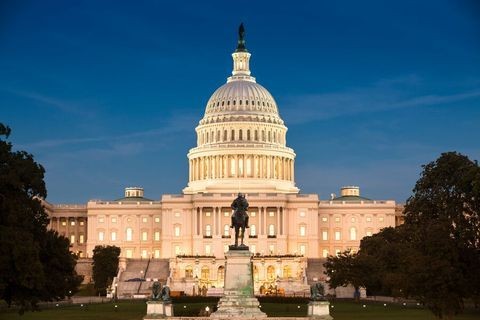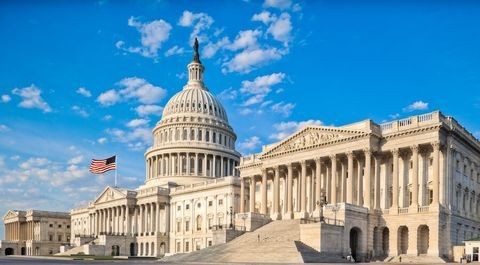Anuj Vohra
Overview
Contractors at an impasse with their government customers turn to Anuj Vohra for creative solutions; decisive, actionable guidance; and effective advocacy.
Career & Education
- Department of Justice: Civil Division
Trial Attorney, Commercial Litigation Branch, 2006–2012 - Illinois
Assistant Corporation Counsel, Constitutional and Commercial Litigation Division, City of Chicago Department of Law, 2003–2006
- Department of Justice: Civil Division
- University of Illinois College of Law, J.D., cum laude
- University of Michigan, B.A.
- District of Columbia
Professional Activities and Memberships
- American Bar Association, Section of Public Contract Law, Co-Chair, Bid Protest Committee
- U.S. Court of Federal Claims Bar Association
- South Asian Bar Association
Anuj's Insights
Blog Post | 02.10.26
Worried Three’s a Crowd? Decline Intervention at Your Own Peril
Client Alert | 1 min read | 02.09.26
Worried Three’s a Crowd? Decline Intervention at Your Own Peril
Blog Post | 02.03.26
Press Coverage | 01.30.26
7th Circ. Grills Trump Admin Atty Over Definition Of Illegal DEI
Representative Matters
- LightBox Parent, LP, B-420032.2 (Feb. 24, 2022); LightBox Parent, LP v. United States, 162 Fed. Cl. 143 (Sept. 14, 2022)—Served as lead counsel in the successful defense of an awarded $50 million Federal Communications Commission contract for data mapping services in serial bid protests filed at the GAO and the Court of Federal Claims.
- VAS Realty, LLC v. United States, 26 F.4th 945 (Fed. Cir. 2022)—Served as lead counsel in the successful appeal of a trial court dismissal of a General Services Administration lease offeror’s bid protest for lack of standing. The decision is being remanded to the Court of Federal Claims per clarified protester standing requirements.
- Schindler Elevator Corp. v. Washington Met. Transit Auth., 16 F.4th 294 (D.C. Cir. 2021)—Served as lead counsel in successful defenses, first in the U.S. District Court for the District of Columbia and then on appeal to the D.C. Circuit, of a Washington Metropolitan Transit Authority escalator repair contract.
- Wisconsin Physician Serv. Ins. Corp. v. United States, 151 Fed. Cl. 22 (2020)—Served as lead counsel in the successful defense of a bid protest challenging a Centers for Medicare & Medicaid Services award of contract for Medicare Administrative Contractor services.
- American Small Business League v. U.S. Department of Defense, 411 F. Supp.3d 824 (N.D. Cal. 2019)—Served as lead counsel in the successful defense of Department of Defense invocation of FOIA Exemption 4 to prevent disclosure of contractor documents in response to a FOIA request. The case represented one of the first applications of Exemption 4 following the Supreme Court’s decision clarifying scope of exemption in Food Marketing Institute v. Argus Leader Media, 139 S. Ct. 2356 (2019).
Anuj's Insights
Blog Post | 02.10.26
Worried Three’s a Crowd? Decline Intervention at Your Own Peril
Client Alert | 1 min read | 02.09.26
Worried Three’s a Crowd? Decline Intervention at Your Own Peril
Blog Post | 02.03.26
Press Coverage | 01.30.26
7th Circ. Grills Trump Admin Atty Over Definition Of Illegal DEI
Insights
Harmonizing AI With EEO Requirements: OFCCP's Blueprint For Federal Contractors
|05.28.24
Westlaw Today
Government Contracts – Bid Protests Enter a Shifting Landscape
|01.09.19
Crowell & Moring's Litigation Forecast 2019
Researchers May Be Forced To Rely On A Court You’ve Never Heard Of
|01.13.26
Inside Higher Education
Worried Three’s a Crowd? Decline Intervention at Your Own Peril
|02.10.26
Crowell & Moring’s Government Contracts Legal Forum
Reminders for a Potential Government Shutdown this Weekend
|02.03.26
Crowell & Moring’s Government Contracts Legal Forum
FYI – GAO Finds Key Person “Available” Despite Accepting Employment with a Different Company
|12.29.25
Crowell & Moring’s Government Contracts Legal Forum
2025 GAO Bid Protest Annual Report: Where Have All the Protests Gone?
|12.19.25
Crowell & Moring’s Government Contracts Legal Forum
Common Questions—and Answers—About A Government Shutdown
|10.01.25
Crowell & Moring’s Government Contracts Legal Forum
The End of the Continuous SAM Registration Requirement …. Almost
|08.13.25
Crowell & Moring’s Government Contracts Legal Forum
Meet the New Nationwide Injunction. Same as the Old Nationwide Injunction.
|08.01.25
Crowell & Moring’s Government Contracts Legal Forum
- |
08.01.25
Crowell & Moring’s Government Contracts Legal Forum
GAO Moves the Goalposts: New Post-Debriefing Timeliness Trap for Protesters
|07.14.25
Crowell & Moring’s Government Contracts Legal Forum
Administrative Relief for USAID Grant Recipients and Applicants Impacted by COVID-19
|03.23.20
Crowell & Moring's Government Contracts Legal Forum
Anuj's Insights
Blog Post | 02.10.26
Worried Three’s a Crowd? Decline Intervention at Your Own Peril
Client Alert | 1 min read | 02.09.26
Worried Three’s a Crowd? Decline Intervention at Your Own Peril
Blog Post | 02.03.26
Press Coverage | 01.30.26
7th Circ. Grills Trump Admin Atty Over Definition Of Illegal DEI






